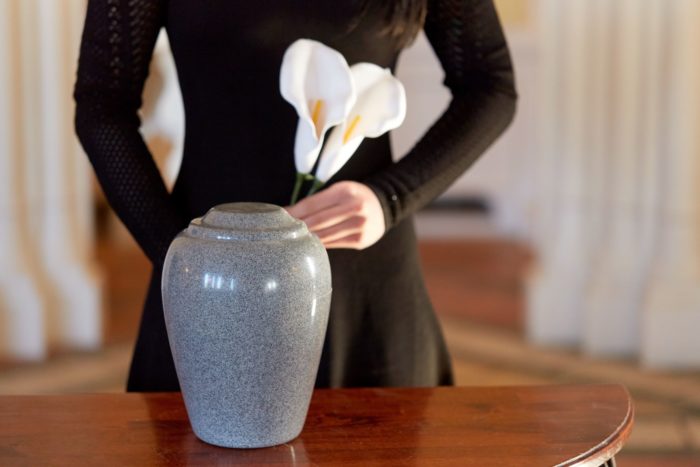
How Is Reproductive Material Different From Other Organs/Human Material?
At first glance, reproductive material would be treated the same as any other human tissue. There are laws already in place that allow for the donation or disposition of human tissue, and estate planners regularly include provisions in their prepared documents where an agent is designated to handle a decedent’s remains. So, it would follow that reproductive material — being that it’s derived from a human — would be treated the same as any other human material.
However, the one key difference, as the courts have pointed out, is that reproductive material can be used to create a posthumous child.(2) As such, an agent that may otherwise have the authority to direct the disposition of a decedent’s remains for the purpose of donation or research would not have the authority to direct the disposition of a decedent’s reproductive material for the purpose of posthumous conception of a child.
When considered in this light, it makes sense that the court would treat reproductive material differently than other human tissues.
What Have the Courts Said About Using a Decedent’s Reproductive Material for Posthumous Conception?
As one would expect with an issue involving the relatively new and rapidly developing field of Assisted Reproductive Technology, there are only a few published cases that deal with the disposition of a decedent’s reproductive material that is either stored or procured after the death of the donor.
Hecht v. Superior Court: Does the Probate Court Have Jurisdiction to Control the Disposition of a Decedent’s Reproductive Material?
The court first addressed the issue of a decedent’s ownership interest in their reproductive material in Hecht v. Superior Court, (1993) 16 Cal.App.4th 836.(4) In Hecht, the decedent deposited 15 vials of his sperm with a cryobank just prior to his death. Though the decedent had been unmarried at the time of his death, he had been in a relationship with Deborah Ellen Hecht (“Hecht”).
The decedent had executed a contract with the cryobank that contained explicit statements demonstrating his intent that the sperm being stored there be available for Hecht’s use to conceive posthumous children. The decedent had also executed a will that echoed this intent.
During estate administration, a property dispute arose between Hecht and the decedent’s children regarding whether the decedent’s estate even held an ownership interest in the deposited sperm, and whether the probate court had jurisdiction to control the sperm’s disposition.
Ultimately, the court held that the decedent’s estate did hold an ownership interest in his reproductive material that fell within the broad purview of Probate Code section 62,(3) which describes how property that falls within the authority of the probate court (based on the terms of the contract or will) is appropriate.

Estate of Kievernagel: What Governs the Distribution of Reproductive Material at Death?
The court next took up the issue of a decedent’s ownership interest in their reproductive material in the Estate of Kievernagel, (2008) 166 Cal. App. 4th 1024. In Kievernagel, the decedent deposited vials of his sperm with an in-vitro fertilization facility that were supposed to be used in the artificial insemination of his wife while the decedent had been alive. The decedent executed a contract with the in-vitro fertilization facility that contained an explicit statement that the donated sperm was the decedent’s sole and separate property, that the decedent retained full authority to direct the sperm’s disposition, and that the sperm was to be destroyed upon decedent death.
After decedent’s death, his surviving spouse attempted to have the reproductive material still being stored at the facility turned over to her. However, the facility denied her request, instead requiring that she produce a court order directing that the sperm be released to her. The spouse thereafter petitioned the court to issue an order distributing the sperm to her.
In deciding whether the decedent’s reproductive material should be distributed to the surviving spouse, the Kievernagel court affirmed Hecht’s holding that, “[Reproductive] material, with its potential to produce life, is a unique type of property and thus not governed by the general laws relating to gifts or personal property or transfer of personal property upon death.”(5)
Further, the court held that a decedent’s intent governs the distribution of reproductive material upon death, thereby justifying the trial court’s decision that the sperm be destroyed because there was insufficient evidence of the decedent’s intent to produce a posthumous child or for the sperm to be distributed to his surviving spouse.(6)

Robertson v. Saadat: Can You Extract Sperm From a Dead Person?
he court most recently took up this issue in Robertson v. Saadat, (2020) 48 Cal.App.5th 630. In Roberston, a wife arranged for the extraction of her husband’s sperm while he was incapacitated. Prior to his incapacitation, he had expressed a desire to have children with her; however, the extraction of his sperm while he was incapacitated was performed solely on her instruction, and there was no evidence proffered demonstrating that he desired for his sperm to be used in the production of a posthumous child.
After the husband subsequently died without regaining capacity, the surviving spouse attempted to affirm that she was entitled to use the his sperm for the purpose of posthumous assisted reproduction, citing both her status as his surviving spouse and his previously expressed intent to have children with her.
The court in Roberston affirmed the trial court’s ruling that the surviving spouse was not entitled to use the decedent’s sperm for the purpose of posthumous conception. What appears to be dispositive in Robertson is the fact that the decedent left no instruction demonstrating that he intended to have a posthumous child conceived using his sperm or that he ever intended to allow for his sperm to be extracted while he was incapacitated. Though the decedent had previously demonstrated an intent to have children with the surviving spouse, this was insufficient to establish the requisite intent for his sperm to be used to produce a posthumous child.
The Roberston court also went further than the court in Kievernagel in holding that: “[Surviving spouse] has no entitlement to [Decedent]’s sperm based on, for example, intestacy law or testamentary documents not specifically providing for disposition of the [genetic] material. In other words, the fact that [surviving spouse] as [Decedent]’s spouse may be his legal next of kin has no bearing on whether she may use his sperm for posthumous conception.”(7)
Thus, under Robertson, a decedent’s estate beneficiaries have no interest in a decedent’s reproductive material, absent a showing of specific intent.

Key Takeaway: Decedent’s Reproductive Material Receives Special Treatment in Probate Court
In summary, given the ethical issues and legal issues in Assisted Reproductive Technology being used for posthumous conception with a decedent’s stored reproductive material, or to extract a decedent’s reproductive material, the court has established specific rules that differentiate the treatment of reproductive material from all other types of property. Because of the relatively recent development of these rules, all attorneys who may encounter these issues should learn how they function and how their application may affect their practice going forward.
For practitioners who are dealing with a probate administration where the decedent’s estate contains the decedent’s reproductive material, they must search for facts demonstrating not only that the decedent intended to have children, but that the decedent specifically intended for their stored reproductive material to be used for the purpose of posthumous conception.
Such a showing appears to be required even if there is no dispute among the beneficiaries of the estate regarding the disposition or use of the reproductive material; once the reproductive material is under the purview of the Probate Court, there must be an affirmative showing of the decedent’s intent prior to the court authorizing its distribution. It appears that a failure to demonstrate this intent will lead to the destruction of the reproductive material.
Estate planners should also take these rules into account if they have clients who have or will store reproductive material for potential posthumous reproduction. A failure to comply with the court’s rules may result in the destruction of the reproductive material, which, in turn, could result in the blame being placed on the estate planning attorney.
General assignments of all property into a trust and/or residuary clauses appear to be insufficient to control the disposition of reproductive material. Instead, estate planners would be wise to incorporate explicit instructions demonstrating their clients’ intent that their reproductive material be used after their death for the purpose of conceiving a posthumous child. While the court has not provided clear instructions regarding the sufficiency of evidence needed to demonstrate the requisite intent, a review of the holdings would suggest that such instructions should at a minimum identify: (1) that the decedent has deposited reproductive material; (2) that the stored reproductive material is to be used for the posthumous conception of a child; and (3) if possible, a chosen recipient of the reproductive material.
Regardless of whether you are engaged in estate planning for clients or are already dealing with the administration of a decedent’s estate that includes reproductive material, attorneys faced with issues regarding the disposition of a decedent’s reproductive material cannot simply rely on the usual rules regarding the control and disposition of property. Instead, we must take into account the specific set of rules the court has carved out regarding reproductive material to ensure that we can properly advise and serve our clients when dealing with such delicate and novel issues.
Have questions about the legality of using a decedent’s reproductive material for posthumous conception? Keystone’s probate lawyers are here to help.
Can you get sperm from a dead person? Is posthumous egg retrieval possible? Who is in control of a decedent’s reproductive material upon their death?
It is good you are asking these questions, because the rules surrounding the disposition of a decedent’s reproductive material are different from the rules governing other types of property.
To ensure the ethical issues with Assisted Reproductive Technology being used for posthumous conception are addressed, it is important to consult with a probate attorney. Regardless of whether you are an estate planner seeking clarification about the rules or you are a surviving spouse seeking access to a decedent’s reproductive material, Keystone will be able to help. Call us today to request a free consultation.
Footnotes
- Reproductive material for the purposes of this article refers to sperm and/or unfertilized ovum collected from an individual.
- “[Reproductive material], with its potential to produce life, is a unique type of property and thus not governed by the general laws relating to gifts or personal property or transfer of personal property upon death.” Estate of Kievernagel, (2008) 166 Cal.App.4th 1024, 1030; See Hecht, supra, (1993) 16 Cal.App.4th 836, 850.
- Probate Code section 62 defines “property” as “anything that may be the subject of ownership and includes both real and personal property and any interest therein.”
- (1993) 16 Cal.App.4th 836, 846; See Davis v. Davis (Tenn.1992) 842 S.W.2d 588, 597.
- (2008) 166 Cal.App.4th 1024, 1030; See, supra, (1993) 16 Cal.App.4th 836, 850.
- Id. at 1030-1031
- Robertson v. Saadat, (2002) 48 Cal.App.5th 630, 645.




